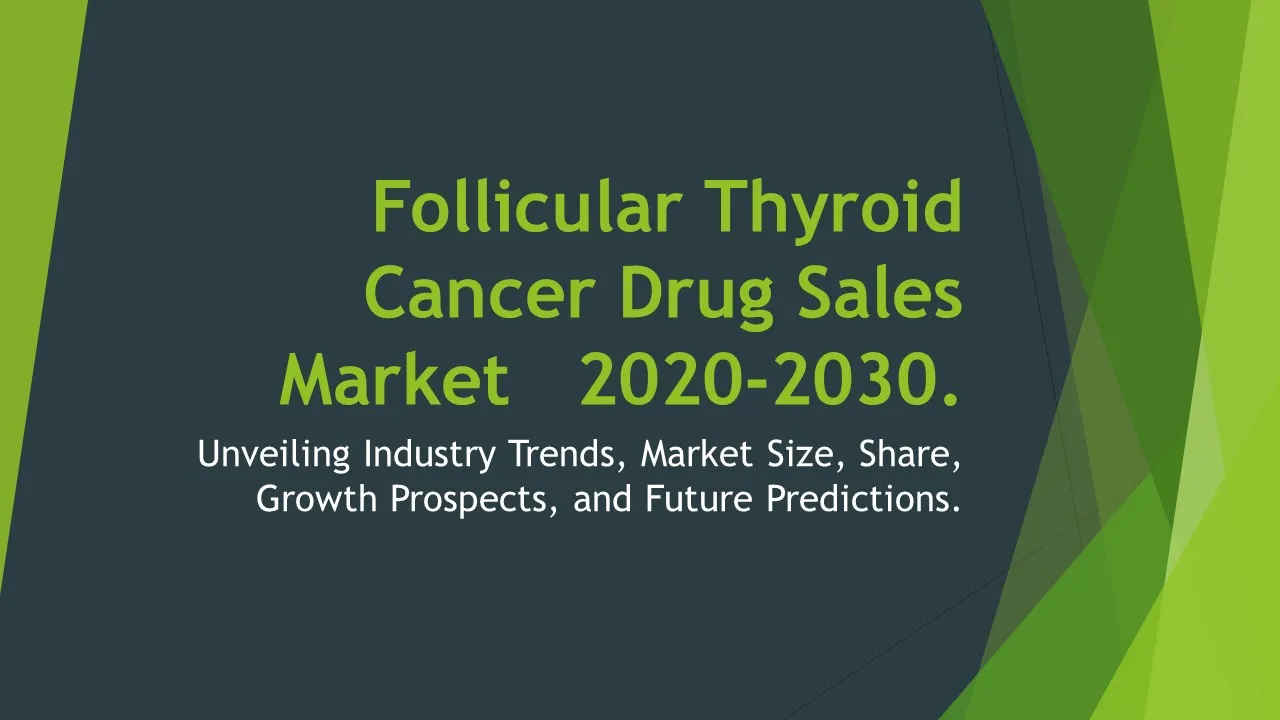Exeter Erlotinib hydrochloride tablet
Erlotinib Hydrochloride Tablet Market Segments - by Product Type (Generic, Brand), Application (Lung Cancer, Pancreatic Cancer, Others), Distribution Channel (Hospital Pharmacies, Retail Pharmacies, Online Pharmacies), Ingredient Type (Erlotinib Hydrochloride), and Region (North America, Europe, Asia Pacific, Latin America, Middle East & Africa) - Global Industry Analysis, Growth, Share, Size, Trends, and Forecast 2025-2035
- Report Preview
- Table Of Content
- Segments
- Methodology
Erlotinib Hydrochloride Tablet Market Outlook
The global erlotinib hydrochloride tablet market is projected to reach USD 1.3 billion by 2035, growing at a CAGR of 6.7% during the forecast period from 2025 to 2035. This growth is primarily driven by the rising prevalence of cancer, particularly lung and pancreatic cancers, along with increasing healthcare expenditure and advancements in cancer treatment options. Furthermore, the growing awareness of targeted therapies, such as erlotinib, which have shown efficacy in improving survival rates among cancer patients, is significantly contributing to the market expansion. The emergence of generic versions of erlotinib is further expected to enhance accessibility and affordability, thus stimulating market growth. Additionally, the shift towards personalized medicine is anticipated to drive demand for targeted therapies like erlotinib, making it a critical player in oncology treatment regimens.
Growth Factor of the Market
One of the primary growth factors fueling the erlotinib hydrochloride tablet market is the increasing incidence of lung cancer, which is one of the most common cancers globally. The continued innovation in cancer therapies, particularly in targeted treatments, is also playing a pivotal role in enhancing the prognosis for patients diagnosed with such malignancies. Furthermore, the rising geriatric population, which is more susceptible to various forms of cancer, is adding to the demand for effective cancer treatments. Moreover, advancements in pharmaceutical research and development have led to the introduction of novel formulations and delivery methods for erlotinib, thereby enhancing patient compliance and treatment outcomes. The proliferation of online pharmacies and retail outlets is facilitating easier access to erlotinib hydrochloride tablets, thereby driving market growth. Lastly, ongoing clinical trials and research studies are expected to further validate the efficacy of erlotinib in treating other types of cancers beyond lung and pancreatic, thus expanding its market potential.
Key Highlights of the Market
- The global erlotinib hydrochloride tablet market is projected to reach USD 1.3 billion by 2035.
- Significant growth is expected due to the increasing prevalence of lung and pancreatic cancers.
- The CAGR of the market is estimated at 6.7% from 2025 to 2035.
- Generic formulations are set to enhance accessibility and affordability.
- Ongoing research may expand the application of erlotinib in treating various cancers.
By Product Type
Generic:
The generic segment of the erlotinib hydrochloride tablet market is anticipated to witness substantial growth over the forecast period. The introduction of generic versions following the patent expiration of branded products has significantly reduced the cost of treatment, making erlotinib more accessible to a larger patient population. This affordability factor is essential in regions with limited healthcare budgets, where patients may otherwise struggle to afford the branded formulations. Furthermore, generic drugs are often produced with the same active ingredients and bioavailability as their brand-name counterparts, ensuring that patients receive effective treatment without the financial burden. The growing emphasis on cost-effective healthcare solutions is favorably impacting the growth of the generic segment within the erlotinib hydrochloride tablet market.
Brand:
The brand segment, while facing competition from generics, remains a vital component of the erlotinib hydrochloride tablet market. Branded erlotinib products are often associated with a higher perceived quality and reliability, which can be crucial for patients and healthcare providers when considering treatment options. Pharmaceutical companies invest significantly in marketing and patient education to promote their branded products, emphasizing their proven track record and comprehensive clinical support. Moreover, branded versions of erlotinib may offer unique formulations or support programs that enhance patient adherence to treatment regimens. As such, this segment continues to hold a notable share of the overall market, particularly in regions with established healthcare systems where brand loyalty and trust are paramount.
By Application
Lung Cancer:
Lung cancer is one of the leading applications for erlotinib hydrochloride tablets, primarily because erlotinib is specifically indicated for the treatment of non-small cell lung cancer (NSCLC) that is sensitive to epidermal growth factor receptor (EGFR) mutations. The increasing incidence of lung cancer globally is leading to a rising demand for targeted therapies like erlotinib, which have shown significant efficacy in prolonging survival rates in patients with EGFR mutations. Moreover, the growing focus on personalized medicine is driving the demand for specific treatments tailored to the genetic makeup of tumors, propelling the use of erlotinib in lung cancer therapy. As advancements in diagnostics improve the identification of eligible patients, the application of erlotinib in lung cancer is expected to continue its upward trajectory.
Pancreatic Cancer:
Pancreatic cancer, though less common than lung cancer, is another significant application area for erlotinib hydrochloride tablets. The use of erlotinib in pancreatic cancer treatment is generally in combination with other chemotherapeutic agents, as it has demonstrated the potential to enhance the effectiveness of standard treatments. The increasing research focus on combination therapies is likely to drive the application of erlotinib in pancreatic cancer, as clinical trials continue to explore its efficacy in different settings. The growing awareness of pancreatic cancer, along with initiatives aimed at improving early detection and treatment modalities, is expected to contribute positively to the demand for erlotinib in this application area, providing hope for improved patient outcomes.
Others:
The "Others" segment encompasses various other cancer types where erlotinib might play a role in treatment. Ongoing research and clinical trials are exploring the potential of erlotinib beyond its established indications in lung and pancreatic cancers. Emerging studies are assessing its benefits in treating head and neck cancers, colorectal cancers, and other solid tumors, which may lead to expanded applications in the coming years. As the understanding of cancer genetics and biology deepens, the potential for erlotinib to be utilized in broader contexts will likely increase. This segment may gain traction as new clinical guidelines emerge, and healthcare providers become more aware of the drug's potential efficacy across different cancer types.
By Distribution Channel
Hospital Pharmacies:
Hospital pharmacies represent a critical distribution channel for erlotinib hydrochloride tablets, particularly due to the nature of cancer treatment which often requires an integrated approach involving specialized oncology units. These pharmacies are equipped to provide comprehensive medication management, ensuring that patients receive the correct dosages and that their treatment is closely monitored by healthcare professionals. Additionally, hospital pharmacies often have access to the latest clinical information regarding drug interactions and patient management, which enhances the safety and efficacy of treatments. The trend toward personalized medicine, where treatment regimens are tailored to individual patient profiles, further solidifies the importance of hospital pharmacies in distributing erlotinib hydrochloride.
Retail Pharmacies:
Retail pharmacies play an essential role in the distribution of erlotinib hydrochloride tablets, providing patients with convenient access to their medications. The increasing focus on patient-centered care and the need for easy access to essential cancer medications are driving the growth of this channel. Retail pharmacies often collaborate with healthcare providers to ensure that patients receive counseling on their medications, including possible side effects and adherence strategies. The proliferation of retail pharmacy chains, coupled with expanded healthcare coverage, is expected to enhance patient access to erlotinib. Moreover, many retail pharmacies are investing in technology to streamline the dispensing process and improve customer service, contributing to their growing significance in the market.
Online Pharmacies:
The rise of online pharmacies has emerged as a transformative distribution channel for erlotinib hydrochloride tablets, offering patients an alternative means of obtaining their medications. With the convenience of online shopping, patients can easily order their prescriptions from the comfort of their homes, which is especially beneficial for those who may have mobility issues or reside in remote areas. Online pharmacies often provide competitive pricing and prompt delivery services, making cancer treatments more accessible. However, it is crucial for consumers to choose licensed and reputable online pharmacies to ensure the authenticity and quality of medications. The growth of telemedicine and digital health platforms is likely to further bolster the role of online pharmacies in the distribution of erlotinib, creating opportunities for improved patient engagement and support.
By Ingredient Type
Erlotinib Hydrochloride:
Erlotinib hydrochloride is the primary ingredient type driving the market for erlotinib hydrochloride tablets. As a potent epidermal growth factor receptor (EGFR) inhibitor, erlotinib hydrochloride has demonstrated significant effectiveness in treating certain types of cancers, particularly non-small cell lung cancer and pancreatic cancer. The active ingredient's mechanism of action involves blocking the signals that promote cancer cell proliferation and survival, thereby hindering tumor growth. Given its established role in targeted cancer therapy, the demand for erlotinib hydrochloride is expected to rise steadily as more patients are diagnosed with EGFR-mutated cancers. Furthermore, ongoing research into its effectiveness in other cancer types could unlock additional market potential, thereby solidifying erlotinib hydrochloride's position as a key ingredient in oncology.
By Region
The erlotinib hydrochloride tablet market is witnessing varied growth trends across different regions. In North America, the market is projected to reach approximately USD 500 million by 2035, with a CAGR of around 7.2%. This growth can be attributed to the high prevalence of lung cancer, supported by advanced healthcare infrastructure and significant investments in cancer research. The regulatory environment in North America also fosters innovation and approval of new therapies, contributing to market expansion. Moreover, patient access programs and improved healthcare coverage have enhanced the availability of targeted therapies like erlotinib, further driving growth in this region.
In Europe, the market for erlotinib hydrochloride tablets is anticipated to reach USD 400 million by 2035, reflecting a CAGR of 5.5%. Factors contributing to this growth include an increasing awareness of targeted cancer treatments and supportive healthcare policies promoting personalized medicine. Additionally, the rising incidence of lung and pancreatic cancers in Europe is leading to a heightened demand for effective therapeutic options. The collaboration between pharmaceutical companies and healthcare providers in the region is expected to advance the dissemination of erlotinib hydrochloride, thereby enhancing patient outcomes across various European countries.
Opportunities
The erlotinib hydrochloride tablet market presents several opportunities that stakeholders can capitalize on to drive growth and enhance patient outcomes. One significant opportunity lies in the expansion of the drug's indications through ongoing clinical trials and research. As the medical community continues to explore the potential of erlotinib in treating additional cancer types, new markets may open up, providing pharmaceutical companies with the chance to broaden their product offerings and reach new patient populations. Investments in research and development, particularly for combination therapies, could lead to more effective treatment regimens that incorporate erlotinib, thereby increasing its utility in the oncology landscape.
Another opportunity exists in the growing trend of telemedicine and digital health platforms. As more patients seek remote consultations and online prescriptions, pharmaceutical companies and pharmacies can leverage these platforms to enhance patient access to erlotinib hydrochloride tablets. By integrating digital health solutions into their business strategies, stakeholders can improve patient engagement, ensure adherence to treatment regimens, and facilitate monitoring of treatment outcomes. Furthermore, educational initiatives aimed at raising awareness about the benefits of targeted therapies like erlotinib can empower patients and healthcare providers alike, fostering a more informed approach to cancer treatment.
Threats
Despite the positive growth trajectory of the erlotinib hydrochloride tablet market, several threats could hinder progress. One of the most significant challenges is the increasing competition from generic alternatives, which could lead to pricing pressures and reduced profit margins for branded products. As more generic versions enter the market, patients may opt for these lower-cost alternatives, thereby impacting the market share of branded erlotinib. Additionally, the emergence of new and more effective treatment options for cancer may overshadow erlotinib, as healthcare providers continuously seek the best therapeutic solutions for their patients. This competitive landscape necessitates that pharmaceutical companies remain agile and innovative to adapt to changing market dynamics and consumer preferences.
Moreover, regulatory challenges and stringent approval processes for new cancer therapies can also pose threats to market growth. Delays in obtaining regulatory approvals for new formulations or indications could impede the timely introduction of innovative products, limiting opportunities for market expansion. Furthermore, reimbursement challenges associated with oncology drugs can create barriers to access, particularly in regions where insurance coverage is limited. Addressing these challenges will require a concerted effort from stakeholders to engage with regulatory bodies, payers, and healthcare providers to ensure that patients have access to essential cancer therapies like erlotinib hydrochloride.
Competitor Outlook
- Roche Holding AG
- Novartis AG
- Teva Pharmaceutical Industries Ltd.
- Sun Pharmaceutical Industries Ltd.
- Hikma Pharmaceuticals PLC
- Aurobindo Pharma Ltd.
- Dr. Reddy's Laboratories Ltd.
- Apotex Inc.
- Alvogen
- Zydus Cadila
- Emcure Pharmaceuticals Ltd.
- AbbVie Inc.
- Mylan N.V.
- Amgen Inc.
- Merck & Co. Inc.
The competitive landscape of the erlotinib hydrochloride tablet market is characterized by the presence of several key players who are actively involved in the manufacturing and distribution of this critical oncology product. Companies like Roche Holding AG and Novartis AG have established themselves as leaders in the market, leveraging their extensive research capabilities and strong distribution networks to maintain a competitive edge. Roche, for instance, is known for its innovative approaches in personalized medicine, while Novartis focuses on developing comprehensive treatment regimens that incorporate targeted therapies like erlotinib. The competitive dynamics are further enriched by the increasing presence of generic manufacturers, such as Teva Pharmaceutical Industries and Sun Pharmaceutical Industries, who are expanding their portfolios to include cost-effective alternatives to branded products.
Moreover, pharmaceutical companies are increasingly collaborating with healthcare providers and research institutions to enhance their market presence and improve patient outcomes. For example, companies like Dr. Reddy's Laboratories and Aurobindo Pharma have entered partnerships aimed at expanding access to erlotinib hydrochloride in emerging markets while ensuring compliance with quality standards. These collaborations often focus on improving patient education, ensuring appropriate use of therapy, and collecting real-world evidence to support the efficacy and safety of erlotinib in diverse populations. Such initiatives not only bolster their competitive positioning but also highlight the importance of collaborative efforts in driving advancements in cancer care.
In addition to established players, several emerging companies are making significant strides in the erlotinib hydrochloride market. Companies like Hikma Pharmaceuticals and Zydus Cadila are ramping up their production capabilities to meet the increasing demand for generic formulations, thereby enhancing patient access and affordability. These companies are also engaging in continuous research and development to explore additional applications for erlotinib, seeking to expand its use beyond traditional indications. As the market evolves, these emerging competitors will play an increasingly important role in shaping the future landscape of the erlotinib hydrochloride tablet market.
1 Appendix
- 1.1 List of Tables
- 1.2 List of Figures
2 Introduction
- 2.1 Market Definition
- 2.2 Scope of the Report
- 2.3 Study Assumptions
- 2.4 Base Currency & Forecast Periods
3 Market Dynamics
- 3.1 Market Growth Factors
- 3.2 Economic & Global Events
- 3.3 Innovation Trends
- 3.4 Supply Chain Analysis
4 Consumer Behavior
- 4.1 Market Trends
- 4.2 Pricing Analysis
- 4.3 Buyer Insights
5 Key Player Profiles
- 5.1 Alvogen
- 5.1.1 Business Overview
- 5.1.2 Products & Services
- 5.1.3 Financials
- 5.1.4 Recent Developments
- 5.1.5 SWOT Analysis
- 5.2 Amgen Inc.
- 5.2.1 Business Overview
- 5.2.2 Products & Services
- 5.2.3 Financials
- 5.2.4 Recent Developments
- 5.2.5 SWOT Analysis
- 5.3 Mylan N.V.
- 5.3.1 Business Overview
- 5.3.2 Products & Services
- 5.3.3 Financials
- 5.3.4 Recent Developments
- 5.3.5 SWOT Analysis
- 5.4 AbbVie Inc.
- 5.4.1 Business Overview
- 5.4.2 Products & Services
- 5.4.3 Financials
- 5.4.4 Recent Developments
- 5.4.5 SWOT Analysis
- 5.5 Apotex Inc.
- 5.5.1 Business Overview
- 5.5.2 Products & Services
- 5.5.3 Financials
- 5.5.4 Recent Developments
- 5.5.5 SWOT Analysis
- 5.6 Novartis AG
- 5.6.1 Business Overview
- 5.6.2 Products & Services
- 5.6.3 Financials
- 5.6.4 Recent Developments
- 5.6.5 SWOT Analysis
- 5.7 Zydus Cadila
- 5.7.1 Business Overview
- 5.7.2 Products & Services
- 5.7.3 Financials
- 5.7.4 Recent Developments
- 5.7.5 SWOT Analysis
- 5.8 Merck & Co. Inc.
- 5.8.1 Business Overview
- 5.8.2 Products & Services
- 5.8.3 Financials
- 5.8.4 Recent Developments
- 5.8.5 SWOT Analysis
- 5.9 Roche Holding AG
- 5.9.1 Business Overview
- 5.9.2 Products & Services
- 5.9.3 Financials
- 5.9.4 Recent Developments
- 5.9.5 SWOT Analysis
- 5.10 Aurobindo Pharma Ltd.
- 5.10.1 Business Overview
- 5.10.2 Products & Services
- 5.10.3 Financials
- 5.10.4 Recent Developments
- 5.10.5 SWOT Analysis
- 5.11 Hikma Pharmaceuticals PLC
- 5.11.1 Business Overview
- 5.11.2 Products & Services
- 5.11.3 Financials
- 5.11.4 Recent Developments
- 5.11.5 SWOT Analysis
- 5.12 Emcure Pharmaceuticals Ltd.
- 5.12.1 Business Overview
- 5.12.2 Products & Services
- 5.12.3 Financials
- 5.12.4 Recent Developments
- 5.12.5 SWOT Analysis
- 5.13 Dr. Reddy's Laboratories Ltd.
- 5.13.1 Business Overview
- 5.13.2 Products & Services
- 5.13.3 Financials
- 5.13.4 Recent Developments
- 5.13.5 SWOT Analysis
- 5.14 Sun Pharmaceutical Industries Ltd.
- 5.14.1 Business Overview
- 5.14.2 Products & Services
- 5.14.3 Financials
- 5.14.4 Recent Developments
- 5.14.5 SWOT Analysis
- 5.15 Teva Pharmaceutical Industries Ltd.
- 5.15.1 Business Overview
- 5.15.2 Products & Services
- 5.15.3 Financials
- 5.15.4 Recent Developments
- 5.15.5 SWOT Analysis
- 5.1 Alvogen
6 Market Segmentation
- 6.1 Exeter Erlotinib hydrochloride tablet Market, By Application
- 6.1.1 Lung Cancer
- 6.1.2 Pancreatic Cancer
- 6.1.3 Others
- 6.2 Exeter Erlotinib hydrochloride tablet Market, By Product Type
- 6.2.1 Generic
- 6.2.2 Brand
- 6.3 Exeter Erlotinib hydrochloride tablet Market, By Ingredient Type
- 6.3.1 Erlotinib Hydrochloride
- 6.4 Exeter Erlotinib hydrochloride tablet Market, By Distribution Channel
- 6.4.1 Hospital Pharmacies
- 6.4.2 Retail Pharmacies
- 6.4.3 Online Pharmacies
- 6.1 Exeter Erlotinib hydrochloride tablet Market, By Application
7 Competitive Analysis
- 7.1 Key Player Comparison
- 7.2 Market Share Analysis
- 7.3 Investment Trends
- 7.4 SWOT Analysis
8 Research Methodology
- 8.1 Analysis Design
- 8.2 Research Phases
- 8.3 Study Timeline
9 Future Market Outlook
- 9.1 Growth Forecast
- 9.2 Market Evolution
10 Geographical Overview
- 10.1 Europe - Market Analysis
- 10.1.1 By Country
- 10.1.1.1 UK
- 10.1.1.2 France
- 10.1.1.3 Germany
- 10.1.1.4 Spain
- 10.1.1.5 Italy
- 10.1.1 By Country
- 10.2 Asia Pacific - Market Analysis
- 10.2.1 By Country
- 10.2.1.1 India
- 10.2.1.2 China
- 10.2.1.3 Japan
- 10.2.1.4 South Korea
- 10.2.1 By Country
- 10.3 Latin America - Market Analysis
- 10.3.1 By Country
- 10.3.1.1 Brazil
- 10.3.1.2 Argentina
- 10.3.1.3 Mexico
- 10.3.1 By Country
- 10.4 North America - Market Analysis
- 10.4.1 By Country
- 10.4.1.1 USA
- 10.4.1.2 Canada
- 10.4.1 By Country
- 10.5 Middle East & Africa - Market Analysis
- 10.5.1 By Country
- 10.5.1.1 Middle East
- 10.5.1.2 Africa
- 10.5.1 By Country
- 10.6 Exeter Erlotinib hydrochloride tablet Market by Region
- 10.1 Europe - Market Analysis
11 Global Economic Factors
- 11.1 Inflation Impact
- 11.2 Trade Policies
12 Technology & Innovation
- 12.1 Emerging Technologies
- 12.2 AI & Digital Trends
- 12.3 Patent Research
13 Investment & Market Growth
- 13.1 Funding Trends
- 13.2 Future Market Projections
14 Market Overview & Key Insights
- 14.1 Executive Summary
- 14.2 Key Trends
- 14.3 Market Challenges
- 14.4 Regulatory Landscape
Segments Analyzed in the Report
The global Exeter Erlotinib hydrochloride tablet market is categorized based on
By Product Type
- Generic
- Brand
By Application
- Lung Cancer
- Pancreatic Cancer
- Others
By Distribution Channel
- Hospital Pharmacies
- Retail Pharmacies
- Online Pharmacies
By Ingredient Type
- Erlotinib Hydrochloride
By Region
- North America
- Europe
- Asia Pacific
- Latin America
- Middle East & Africa
Key Players
- Roche Holding AG
- Novartis AG
- Teva Pharmaceutical Industries Ltd.
- Sun Pharmaceutical Industries Ltd.
- Hikma Pharmaceuticals PLC
- Aurobindo Pharma Ltd.
- Dr. Reddy's Laboratories Ltd.
- Apotex Inc.
- Alvogen
- Zydus Cadila
- Emcure Pharmaceuticals Ltd.
- AbbVie Inc.
- Mylan N.V.
- Amgen Inc.
- Merck & Co. Inc.
- Publish Date : Jan 21 ,2025
- Report ID : PH-65547
- No. Of Pages : 100
- Format : |
- Ratings : 4.5 (110 Reviews)









